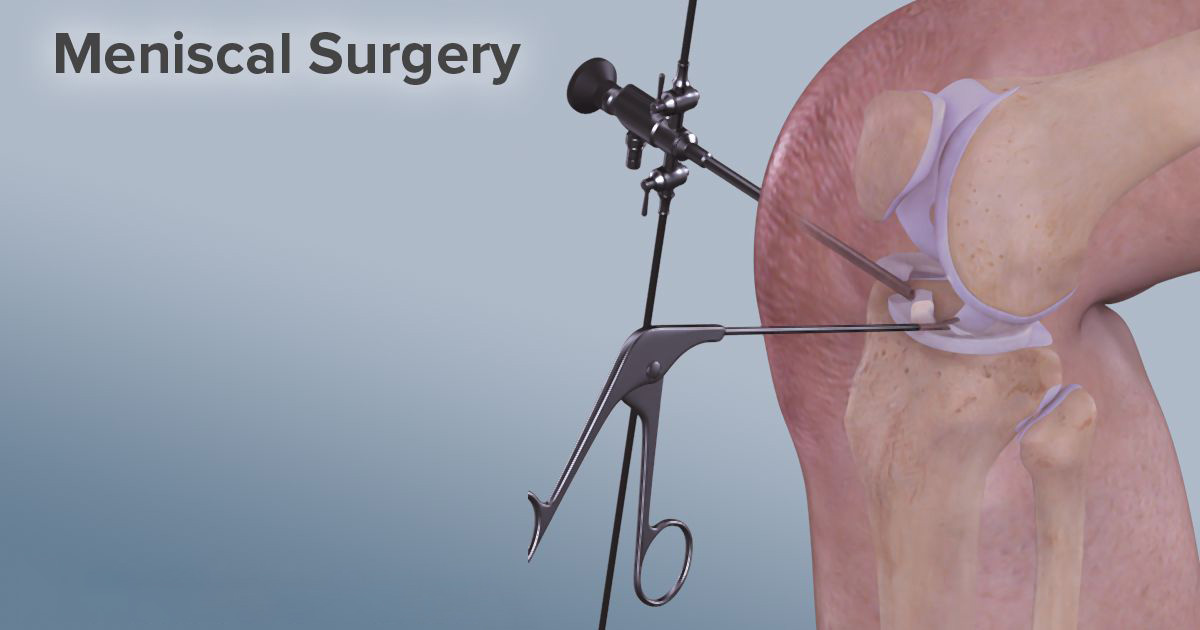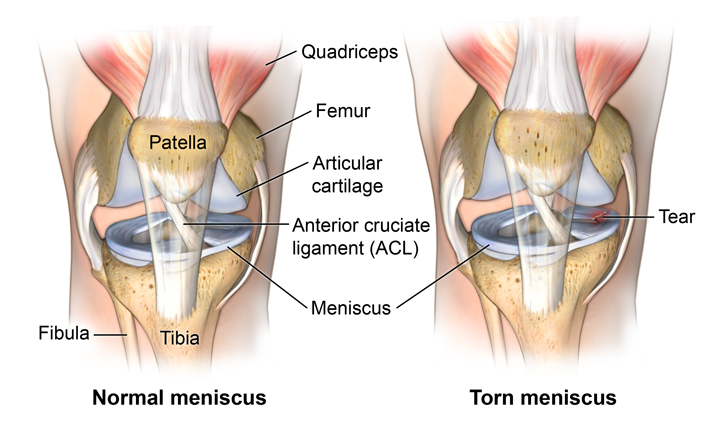Overview of Meniscal Tear Treatment in Mathura
A meniscal tear is a common knee injury that affects the cartilage in the knee joint, called the meniscus. This injury may result in knee swelling, discomfort, and restricted motion. Medial meniscal tears, which affect the inner cartilage, and lateral meniscal tears, which affect the outer cartilage, are the two most common forms of meniscal tears.

What Are Some of the Causes of Meniscal Tears?
Meniscal tears can occur for several reasons, such as:
- Age: The meniscus may deteriorate and become more prone to tears as people age, making this injury more prevalent in elderly people.
- Sports and physical activity: Participating in sports or activities that require twisting, pivoting, or sharp turns can raise your risk of meniscal tears. These injuries are frequently linked to sports like skiing, basketball, and football.
- Trauma: Meniscal rips can result from direct hits or impacts to the knee, such as those that happen in car accidents or falls.
- Degeneration: The meniscus can gradually deteriorate with time, increasing the risk of tears, particularly in people with pre-existing knee disorders.
Symptoms of Meniscal Tears:
- Knee pain, particularly while carrying weight or bending the knee.
- Knee joint swelling and stiffness, frequently accompanied by warmth.
- Having trouble fully extending or flexing the knee
- Knee “locking” or “catching” as you try to move it
- A feeling of instability or the knee giving way, particularly when exercising.

Treatment Options for Meniscal Tears:
The treatment plan for meniscal tears depends on a variety of factors including the severity of the condition, its location as well as the patient’s general overall health. Treatment options for meniscal tears may include:
- Conservation Management: Rest, ice, compression, and elevation (RICE) along with physical therapy and anti-inflammatory medications may be recommended in cases of mild or moderate tears.
- Surgical Options:
Here are the primary surgical options for meniscal tears:- Arthroscopic Surgery: This minimally invasive procedure is commonly used to repair meniscal tears, especially when the tear is located in the outer, well-vascularized part of the meniscus. During arthroscopic repair, the orthopaedic surgeon uses small incisions and a camera (arthroscope) to visualize the tear and then uses sutures to stitch the torn edges of the meniscus together. This option aims to preserve the meniscus and its function.
- Meniscectomy (meniscal removal):
Partial Meniscectomy: This procedure may be used when the meniscus cannot be successfully healed or when the tear is in the inner, less vascularized zone. The surgeon performs this operation by removing the torn or damaged meniscus while preserving as much healthy tissue as feasible. This aids in pain relief and knee function recovery. - Total Meniscectomy: In extremely rare circumstances, a total meniscectomy may be required when the entire meniscus is severely injured or irreparably destroyed. The meniscus must be completely removed to do this.
Frequently Asked Questions (FAQs) About Meniscal Tear:
Small meniscal tears may occasionally heal on their own with rest and conservative treatment. Larger or more complicated tears, however, often need medical attention.
Surgery is not always required, no. The type, location, and degree of the tear will determine the treatment strategy. Conservative approaches can be effective in treating many meniscal injuries.
Depending on the size of the tear and the type of surgery, recovery time can change. In general, getting back to normal activities can take a few weeks to months.
Experience Effective Pain Relief with Meniscal Tear Treatment by the Best Surgeon to Treat Pain
A meniscal tear can be a painful and limiting knee injury, and finding the right orthopaedic specialist is crucial for effective treatment. Dr. Swapnil Verman, renowned for his expertise in orthopaedic care, particularly in addressing meniscal tears, offers comprehensive treatment solutions in Mathura.
Meniscal tears can significantly impact your knee’s function and overall quality of life, and Dr. Verman’s approach combines evidence-based therapies with personalised care.
Contact us
Make an Appointment
Contact
+ 91 9760070333
Location
Verman Hospital,Sadar Road,Mathura,281001
